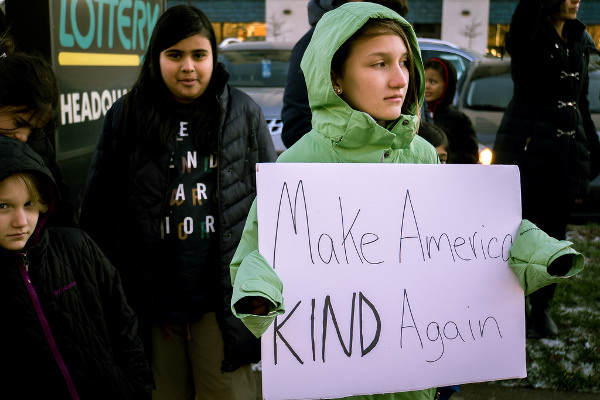
PHOTO/CHAD CARPENTER
Editor’s note: Below we print with permission excerpts from an article which appeared in the journal Facing South: A Voice for a Changing South in March 2017.
What a nightmare.
[In March 2017], U.S. Immigration and Customs enforcement busted into a taco place in Raleigh County, West Virginia, as if this were Nazi Germany. Three men were arrested and face deportation, one of whom is married to a West Virginia resident and has been in the state for 20 years — and more importantly, each of whom is a human being who was simply trying to make it through the workday.
Perhaps this quote from “a local resident” represents the mentality of folks who think that sending brown people away will solve their economic problems:
“[I]t needs to be done, a lot of young folks need a job and why can’t they get that job.”
Raleigh County is about 1 percent Hispanic or Latino. According to the American Community Survey, there are 502 individuals who self-identify as “Hispanic/Latino” and are of “Mexican” descent in all of Raleigh County. If every one of those 502 non-“folks” was A) a working-age adult, B) employed, C) employed at a place where a “folk” could go work, D) undocumented, E) rounded up and deported at taxpayer expense, and then F) a young person “from Raleigh County” walked right into that job, it would impact the unemployment rate by less than 1 percentage point.
Kids in Raleigh County can’t get a job because most of West Virginia’s politicians have treated coal like a religious idol.
The coal industry has eliminated half its jobs in less than a decade for West Virginia counties in Central Appalachia. That isn’t because of workers of a particular descent, but because the coal seams are deeper, thinner, and of a worse quality — and the jobs are increasingly mechanized.
Life expectancy in Raleigh County is five years less than the national average. About one in five adults over 25 in the Beckley, West Virginia area don’t have a high school diploma.
There is real economic anxiety in our region and country, but we cannot and should not racism our way out of the problems that our country faces. You can’t deport this problem.
I am grateful to know and follow the lives of so many amazing people across Appalachia working to solve many of the problems that are inherent in America, but also many of the problems specific to our region which has never really gotten back from the coal industry what we put in.
Here is to a better future for our home.
J.W. Randolph is a husband and father who grew up in the hills of East Tennessee.
